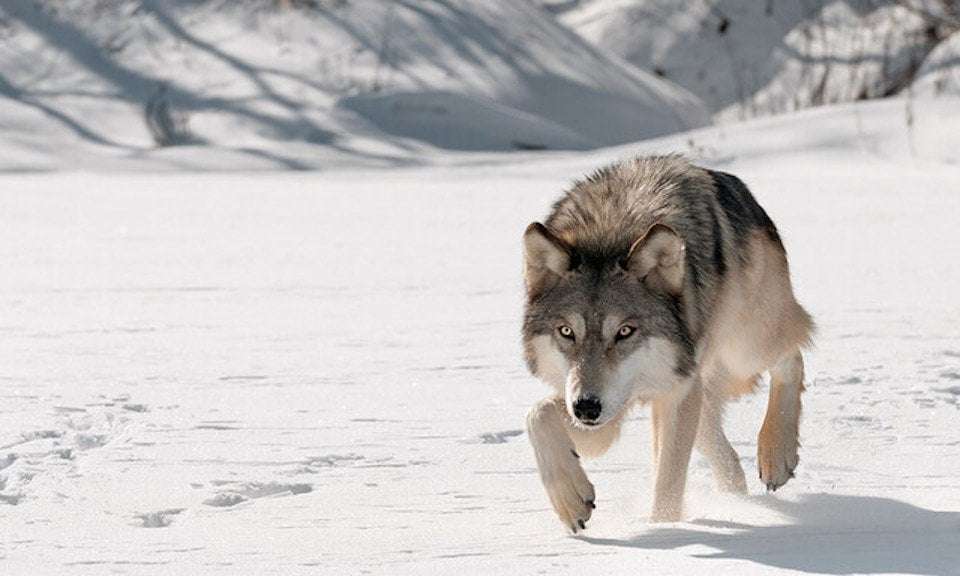Wolves shed villainous image, with survey showing most Canadians have a favourable perception of the predator.
For thousands of years, wolves have often taken on the role of villain — in fairy tales, Saturday-morning cartoons and feature films.
Despite their record in popular culture, according to a recent survey, seven in 10 Canadians say they have a “very positive” view of the iconic predators.
Aaron Hofman, the director of advocacy and policy for the The Fur-Bearers, said the results were “surprising.”
“Wolves have a very complex history in Canada. There have been wolf bounties in the past. They’ve been treated as vermin or pests,” Hofman said.
“But now, you know, one of the results [of the poll] is that 83 per cent of Canadians believe that wolves are important members of the ecosystems and should be protected.”
The survey, released this week, was carried out by Research Co. and researchers Stephanie Rutherford and Valli Fraser-Celin on behalf of the The Fur-Bearers. It comes as the provinces of B.C. and Alberta maintain a cull program meant to lethally control wolf populations. B.C.’s caribou recovery program has killed nearly 2,000 wolves since it began in 2015.
The provincial governments have defended their actions on grounds that they are trying to help endangered caribou bounce back. Moreover, wolves in Canada are not considered threatened, and outside of the Maritimes, there are roughly 60,000 wolves in Canada, according to the International Wolf Center.
But that doesn’t mean Canadians don’t care about their well-being. While 60 per cent of respondents agreed wolves are a primary threat to farm animals, more than two-thirds agree that killing wolves “is wrong, even if it’s done to save another species.”
Those between 18 and 55 years old and people living in remote or rural areas had a more positive attitude toward wolves, according to the survey.
Nearly half of the 1,000 participants said they were comfortable living either within 50 or 25 kilometres of a wolf. Another 16 per cent said they wouldn’t mind living within five kilometres of the predator.
Hofman said his organization hopes the survey will help start filling a gap in understanding attitudes towards wolves in Canada.
“They're important members of the Canadian ecosystems and they’re a valuable part of our country,” he said.
The poll was conducted from March 17 to 19, 2023. It carries a margin of error of 3.1 per cent.

Samsquanch1985 on July 15th, 2023 at 23:34 UTC »
Canadian from northern Ontario who regularly sees bears and wolves (hear the wolves moreso) checking in.
The last of your worries here are wolves and bears....I'd worry more about inflation, moose, and Canada geese - in that same order which goes from very concerned, to mildy concerned if you see one alone in the bush (x10 if its a male when rutting season is on), to not at all (but be ready to throw down and show a bird who's boss if need be).
These guys want absolutely no part of us though. Truth. Wolves are plenty smart enough to know we suck. And bears are the least brave apex predator that I've ever seen, honestly. I'm sure that one lone Wolverine could still scare away a super pack of 20 bears from a dear corpse (bears don't live in packs fwiw).
SuperArppis on July 15th, 2023 at 20:10 UTC »
Good that some places appreciate the wolves. I get they can be dangerous and destroy cattle, but still. They are needed for nature to thrive.
Buck_Thorn on July 15th, 2023 at 19:05 UTC »
https://wildlife.org/report-documents-wolf-attacks-around-the-world/
He adds: